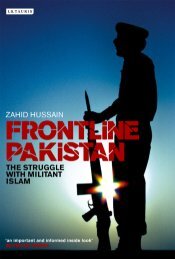Who Owns Pakistan - Yimg
Who Owns Pakistan - Yimg
Who Owns Pakistan - Yimg
You also want an ePaper? Increase the reach of your titles
YUMPU automatically turns print PDFs into web optimized ePapers that Google loves.
Karim group had shifted to Japan as early as 1940 to look after the family<br />
business in South East Asia. He was chairman of the Muslim community and<br />
vice chairman of Muslim Mosque Committee in Tokyo before migrating to<br />
<strong>Pakistan</strong> to set up Ahmad Abdul Ghani Cotton Mills Karachi in 1951.<br />
Haji Habib Ahmad of Bantva, later known as Seth Habib Araqwala is reported to<br />
have set up 50 branches of his grain import-export business all over India, by the<br />
time <strong>Pakistan</strong> came into being. Adamjee were operating world's biggest jute mill<br />
employing 30,000 poeple and Dawood owned Karnaphuli Paper Mills, the<br />
biggest pulp and paper project in South Asia.<br />
Kasim Dada today has only two companies listed on the stock exchange, his<br />
name does not appear in the 22 families or anywhere in the income tax or wealth<br />
tax directory, yet undoubtedly he is the single biggest investor on Karachi Stock<br />
Exchange. He was perhaps <strong>Pakistan</strong>'s first industrialilst to own a private Cesena<br />
plan in the 1960's in which he used to fly down to his cement factory in<br />
Hyderabad. His ancestors had set up the well known firm of Dada Abdullah and<br />
Company which sent M K Ghandi popularly known Mahatama Gandhi to South<br />
Africa, as their legal representative in the 1890.<br />
While taking about the wealth and economic powers of the Dada family Sergey<br />
Levin observed in his article, the Memons of <strong>Pakistan</strong> published in 1975, that "<br />
one of the oldest commercial houses of Memons is the Dada Commercial House.<br />
Long before the formation of <strong>Pakistan</strong>, the ancestors of present day proprietors<br />
established a group of trade and industrial enterprises in India, Burma, South<br />
Africa and countries of Near East. In <strong>Pakistan</strong> Dadas were among the major<br />
importers and exporters, at the same time to a considerable extent retaining their<br />
interests in other countries including India. The Dadas also founded a great<br />
number of industrial enterprise in <strong>Pakistan</strong> including Asbestos Cement plant in<br />
Karachi, Hyderabad and Chittgong, three textile companies, Oil Mills, Cotton and<br />
chemical plants. But Dada's share in <strong>Pakistan</strong>'s big business must not be judged<br />
only on on the basis of the enterprises which they control directly. The point is<br />
that the Dada's who have continuously held ruling positions in Karachi Stock<br />
Exchange have made wise use of concealed form financial control. They are<br />
junior partners in number of <strong>Pakistan</strong>i and foreign monopolies and all this<br />
provides a basis for including the Dada's among the 22 monopoly families in<br />
<strong>Pakistan</strong>.<br />
M A Rangoonwala, now settled in Malaysia and engaged in the export of plam oil<br />
to <strong>Pakistan</strong> was the Memon of the Memon communityu. Born in 1924 in Burma,<br />
he had lived like a migratory bird, leaving deep footprints at every stop. He came<br />
to Bombay in 1934 from Rangoon to set up his family business, migrated to<br />
<strong>Pakistan</strong> in 1947 and by 1970 his Rangoonwala-Bengali group comprised 30<br />
companies relating to textile, food, chemical, woodworking and timber trade. He<br />
was president of National Bank of <strong>Pakistan</strong> for seven years and represented on<br />
the board of 40 companies not belonging to his group.<br />
74













